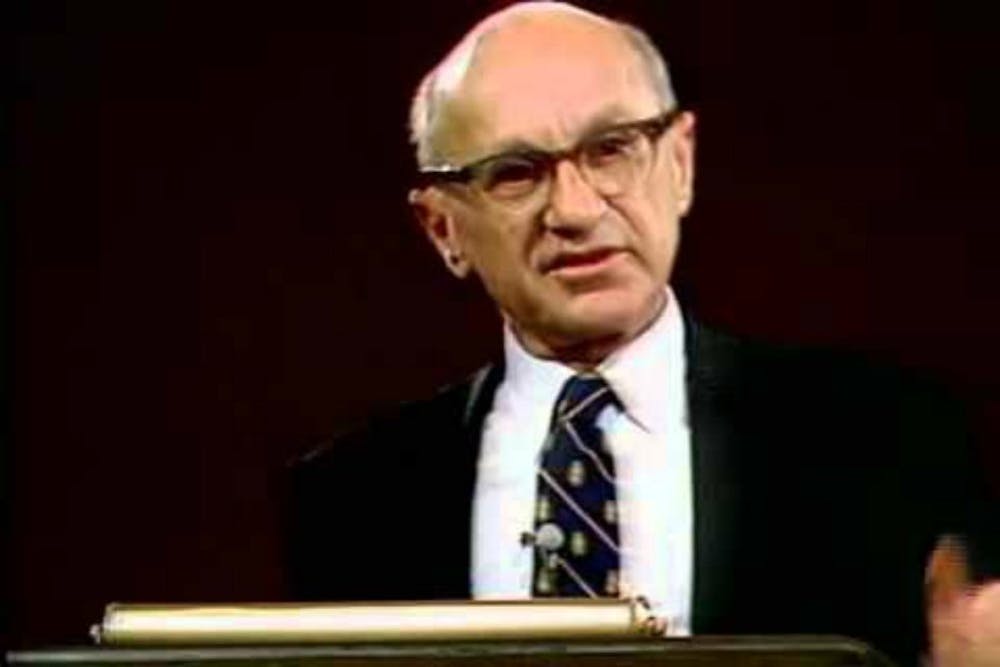Milam's Musings, milambc@miamioh.edu
Currently, the United States sits on the most sensible welfare reform policy proposal, sharing bipartisan support, without realizing it.
I'm talking about a Basic Income Guarantee (BIG).
The idea is simple enough: give every American citizen an annual check of some designated amount. Depending on the proposal, it could be for every American citizen -- children, adults, rich or poor; or you could do it for every adult over 21; or just those in the bottom income bracket.
Charles Murray, a libertarian, in his proposal for a BIG, stipulated the money at $10,000 in 2006 dollars.
The finer details of the proposal - the who and the how much - can be ironed out later. The point, at least from the perspective of those on the right, is not to do a BIG in addition to our current sprawling, bloated welfare system, but in replacement of it.
In other words, a government welfare state is a reality. Almost every individual in the United States, to some varying extent, supports a social safety net.
Given my political persuasion (free market anarchist), I would prefer there not be a government welfare state at all. But I'd first work with the way the world operates rather than how I wish it operated.
Within this reality, I would rather reform it to work the best it can as opposed to continuing the status quo.
Currently, there are 126 federal (government) programs aimed at welfare of some kind, whether it's medical care, housing, food or otherwise. Then there are obviously numerous programs at the state and local levels.
It makes much more sense to consolidate those 126 federal government programs into one streamlined program.
And unlike those programs, the appeal of a BIG is that it's just giving the recipient money without stipulations or qualifications. The recipient gets to choose how to spend the money.
Enjoy what you're reading?
Signup for our newsletter
It's not means-tested, meaning there is no nonsense over drug testing welfare recipients or proving employment.
One of the strongest appeals of the BIG is the aforementioned bipartisan support.
Milton Friedman and F.A. Hayek (free market economists), Bruce Bartlett (a conservative who served in the Reagan and George H.W. Bush administrations), Martin Luther King, Jr. and David Graeber (a leading figure in the Occupy Wall Street movement) have all expressed support for some variation of the BIG.
Given how untenable reparations for slavery is, the BIG could act as a quasi-reparations program, too.
Matt Zwolinski, a libertarian, made the case for BIG in his Cato Institute article, "The Pragmatic Libertarian Case for a Basic Income Guarantee," which has been influential to my thinking on the subject.
Zwolinski has four main reasons why the BIG is a policy proposal worth doing: it involves less bureaucracy (poor people struggle currently to navigate the myriad red tape); it costs less (depending on the implementation plan); it is less rent-seeking (with no strings attached, it's a policy that's legitimately egalitarian); and it's less paternalistic (there are no eligibility requirements).
For Zwolinski, welfare reform isn't a question of ideal theory, but rather that of comparative institutional analysis. Within the confines of political reality, a BIG is necessarily more liberty-minded than the current welfare state.
There are certainly valid criticisms of the BIG, just as there are of current welfare programs.
Criticisms such as a BIG would deincentivize working, that government would quickly impose conditions and that there's a concern wherein the government can argue against civil disobedience on the grounds that it's giving us a basic income.
Zwolinski in particular worries about even more fervent anti-immigration stances if a BIG was in place, although we see that now with the current welfare state.
(I don't have the space to address all those criticisms, but I wanted to at least acknowledge them.)
However, with respect to the primary objection one would find with the BIG -- that it would deincentivize working -- I'm hard-pressed to care, and the evidence is not so compelling that it would, anyhow.
In the United States, working is beyond reproach; it's in our American DNA that a strong work ethic is one of the greatest virtues to possess. I'm not so compelled by such thinking, which I know may sound peculiar coming from a free market anarchist.
Work serves a purpose and has value, but we tend to give it too much at the expense of relaxation and leisure.
But it is also that work is so ingrained a value in our American DNA, which, arguably, counters the notion that people would stop working outright.
Custom is a prime mover of human action.
The empirical evidence available from the Negative Income Tax experiments between 1968 and 1980 - the closest equivalence to the BIG, albeit it's conditional - showed that there was an overall decrease in work effort, but it was rather small. People didn't leave the workforce. Rather, periods of unemployment lasted longer.
But as Zwolinski points out in his response to such a criticism, this "gospel of work" misses the point. With such a safety net, people would be free to do other things, like go back to school, take care of their newborn child or simply not feel so much pressure if they're laid off from a job.
It's unusual for a policy related to welfare to have such specific support from all sides of the political spectrum and yet, oddly, it hasn't exactly reached full currency in the mainstream.
I do find it odd that Bernie Sanders, the self-avowed socialist, is merely "sympathetic" to the idea rather than a vocal advocate, however.
Imagine if someone with his current momentum and platform proposed this sensible idea rather than pandering with free college tuition and a $15 minimum wage.
I want to live in a world with more freedom, not less. The BIG is not ideal freedom, but it is necessarily more freedom than the current welfare state.




